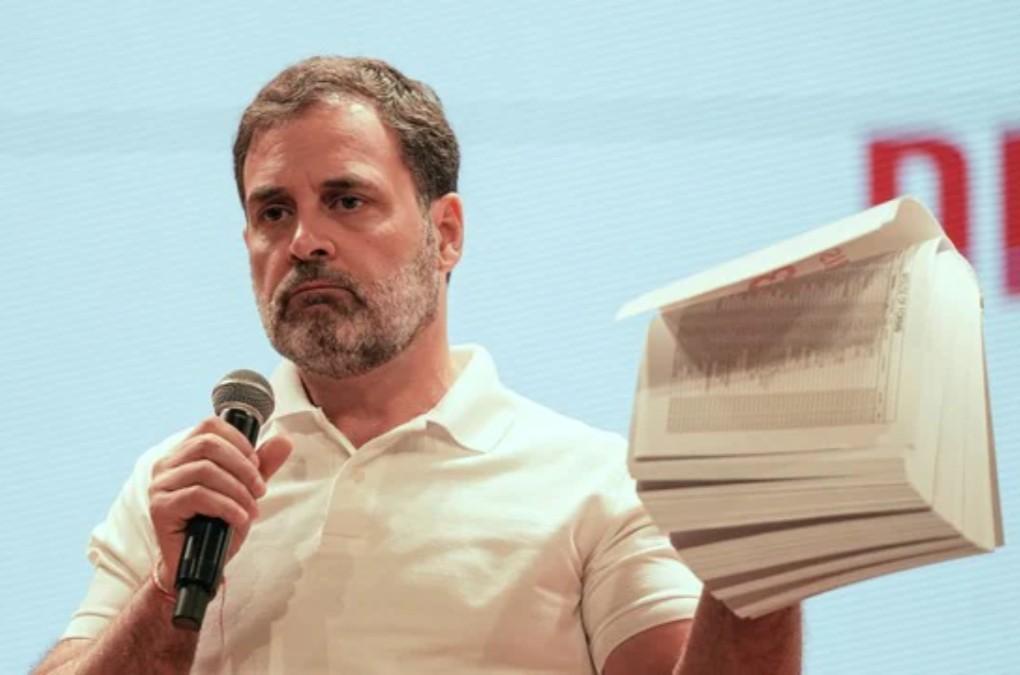
What are Rahul Gandhi’s allegations of voter fraud?
Rahul Gandhi, the Indian National Congress (INC) leader and former President, has made some startling allegations regarding voter fraud in the recent Indian elections. In a series of tweets, Gandhi claimed that over one crore new voters were added in Maharashtra between the Lok Sabha polls and the Assembly polls, which the Congress and its allies had won, but ultimately lost. This is not the first time Gandhi has made such allegations, as he also accused the Election Commission of India (ECI) of adding dubious voters in the Mahadevapura Assembly segment in Bangalore Central Lok Sabha seat, which the Bharatiya Janata Party (BJP) won.
Gandhi’s allegations have sparked a heated debate in the political circles, with many calling for an investigation into the matter. In this blog post, we will delve into the details of Gandhi’s allegations, the ECI’s response, and the implications of this controversy on the Indian political landscape.
The Allegations
According to Gandhi, over one crore new voters were added in Maharashtra between the Lok Sabha polls and the Assembly polls. This is a staggering number, considering that the total number of voters in Maharashtra is around 6.5 crores. Gandhi claimed that this sudden surge in new voters was suspicious and could be a result of voter fraud. He also alleged that the ECI had failed to take adequate measures to ensure the integrity of the electoral process.
Gandhi’s second allegation was regarding the Mahadevapura Assembly segment in Bangalore Central Lok Sabha seat. He claimed that over one lakh dubious voters were added in this segment, which was won by the BJP. Gandhi alleged that these voters were added after the Lok Sabha polls and were not part of the electoral rolls at the time of the polls.
The ECI’s Response
The ECI has dismissed Gandhi’s claims, stating that the allegations were baseless and lacked evidence. In a statement, the ECI said that the electoral rolls are updated regularly and that the addition of new voters is a natural process. The ECI also pointed out that Gandhi’s allegations were made without any concrete evidence or proof.
The ECI has also clarified that the electoral rolls are prepared and updated by the respective states, and that the ECI only provides technical support and supervision. The ECI has also stated that it has taken several measures to ensure the integrity of the electoral process, including the use of Electronic Voting Machines (EVMs) and Voter-Verified Paper Audit Trails (VVPATs).
Implications of the Controversy
Gandhi’s allegations of voter fraud have sparked a heated debate in the political circles, with many calling for an investigation into the matter. The controversy has also raised questions about the integrity of the electoral process and the credibility of the ECI.
The BJP has accused Gandhi of making baseless allegations and trying to discredit the ECI. The BJP has also claimed that Gandhi’s allegations are an attempt to divert attention from the Congress’s poor performance in the elections.
The controversy has also raised concerns about the impact of social media on the political discourse. Gandhi’s allegations were first made on Twitter, and they quickly went viral, sparking a heated debate on social media. This has raised questions about the role of social media in shaping public opinion and the need for fact-checking and verification of information.
Conclusion
Rahul Gandhi’s allegations of voter fraud have sparked a heated debate in the political circles, with many calling for an investigation into the matter. While the ECI has dismissed Gandhi’s claims, the controversy has raised questions about the integrity of the electoral process and the credibility of the ECI.
The controversy has also raised concerns about the impact of social media on the political discourse, and the need for fact-checking and verification of information. As the Indian political landscape continues to evolve, it is essential to ensure that the electoral process remains free and fair, and that the integrity of the political system is maintained.
Source:






